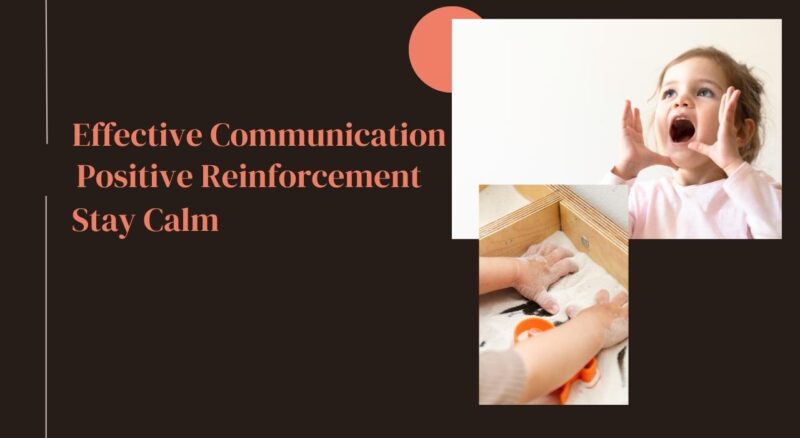Every parent knows how challenging it can be when the baby is growing, especially in the first few years. It’s an age where children are exploring their independence, pushing boundaries, and learning more about the world around them.
While this is an essential phase for their growth, it often leads to moments of defiance that can test a parent’s patience. Therefore, understanding the roots of this behavior and employing some effective strategies can greatly help in managing it.
Understanding Toddler Defiance
It is not just about being naughty or trying to irritate you. It’s a natural part of their development.
The Developmental Perspective
Toddlers are in a rapid phase of cognitive and emotional development. They’re beginning to realize that they’re separate from their caregivers and are eager to explore this newfound independence.
They also lack the emotional regulation skills and language capabilities to express their needs effectively.
- Cognitive Growth: At this age, toddlers’ brains are like sponges, absorbing everything around them. Their curiosity drives them to touch, taste, and experiment with everything, even if it’s against your wishes.
- Seeking Autonomy: As toddlers realize they’re independent beings, they start asserting themselves. Saying “no” becomes a tool for them to exert control over their environment.
Emotional Triggers
It’s essential to recognize the emotions that are causing defiant behavior. In many cases, it’s not just the need for independence but other emotional triggers.
- Frustration: Small kids get frustrated easily, especially if they can’t achieve something they want. This frustration, combined with limited verbal skills, often results in defiance or tantrums.
- Overwhelm: Being in new or over-stimulating environments can be difficult for toddlers. Too much noise, too many people, or a change in routine can trigger negative behavior.
The Role of Boundaries
Consistency is key. Kids are often driven by predictability and routine. Knowing what to expect provides them with a sense of security.
- Need for Structure: While it might seem counterintuitive, toddlers need boundaries. It helps them understand the world and learn what’s acceptable.
- Consistent Enforcement: It’s crucial to be consistent in enforcing these boundaries. Mixed signals can confuse toddlers and lead to more defiance.
Strategies to Deal With Defiance

Understanding the reasons behind defiance is half the battle. Here are some tried and tested strategies to handle and prevent these challenging behaviors.
Effective Communication
The way you communicate with your toddler plays a pivotal role in managing defiance.
- Use Simple Language: Toddlers can’t process complex instructions. Keep your language simple, and be specific about what you want them to do.
- Active Listening: Pay attention to your child’s non-verbal cues. They might be trying to communicate something important. Listen to them actively and validate their feelings.
Positive Reinforcement
Focusing on positive behaviors instead of punishing negative ones can be very effective.
- Praise Good Behavior: Whenever your toddler listens or behaves well, praise them. This reinforces the behavior, making them more likely to repeat it.
- Offer Choices: Instead of saying a direct ‘no’, offer alternatives. For instance, if they don’t want to wear a particular shirt, give them two other options to choose from.
Stay Calm
Your emotional state directly impacts your toddler’s behavior. Staying calm can sometimes make a bigger impact on small children than expressing frustration in any way.
- Avoid Power Struggles: Engaging in a power struggle with a toddler is a losing battle. Instead, divert their attention or offer alternatives.
- Spend Quality Time: Strengthen your bond with your child by spending quality time together. This makes them feel secure and less likely to act out.
Emotional Intelligence
One of the overlooked aspects when dealing with this problem is the development of their emotional intelligence. You should focus on that from an early age.
Understanding Their Feelings
Before kids can regulate their emotions, they need to understand them. Helping your child label and recognize their feelings is the first step.
- Name the Emotion: When your toddler is upset, label the emotion for them. “I see you’re feeling frustrated because you can’t get the toy to work.”
- Validate Their Feelings: It’s essential to let your toddler know that their feelings are valid. Saying things like, “It’s okay to feel sad,” can make them feel understood.
Role Modeling
Your child learns by watching you. By demonstrating proper emotional responses, you teach them indirectly.
- Show Empathy: When your child is upset, show them empathy. This not only comforts them but also teaches them how to empathize with others.
- Manage Your Reactions: It’s essential to model appropriate reactions. If you react angrily to situations, your toddler is likely to mimic that. Demonstrating calmness and patience teaches them to do the same.
Provide Tools for Expression
Giving your kid tools to express themselves can reduce instances of defiance significantly.
- Use of Art: Drawing or coloring can be a great way for toddlers to express their emotions. Encourage them to draw how they feel.
- Teach Calming Techniques: Simple techniques like taking deep breaths can help toddlers calm down when they’re feeling overwhelmed.
The Power of Routine

Routine and structure can provide a sense of security for kids. The common misconception is that they are too young for some things. You should start teaching them about some good habits from the start.
Predictability
Just like adults, kids find comfort in knowing what comes next. A predictable routine reduces anxiety and rebellious behavior.
- Set Regular Timings: Have set timings for meals, naps, playtime, and bedtime. This regularity helps toddlers feel more in control.
- Involve Them in the Routine: Let your toddler take charge of some parts of their routine. For instance, they can choose a bedtime story. This gives them a sense of autonomy.
Clear Expectations
When children know what is expected of them, they are less likely to defy.
- Set Clear Rules: Make sure your toddler knows the house rules. Use positive language like “We use gentle hands” instead of “Don’t hit.”
- Use Visual Aids: Toddlers respond well to visual cues. Using charts or pictorial representations of their daily routine can be helpful.
Motivate Their Independence

It’s crucial to understand that defiance is often a sign of growing independence. Instead of fighting it, find ways to guide them in the right direction.
Encourage Safe Exploration
Curiosity is natural. Provide a safe environment where they can explore without constant reprimands.
- Childproof Your Home: This allows your toddler to move freely without the risk of accidents and reduces the number of times you have to say ‘no’.
- Determined Play Areas: Having specific areas where they can play and make a mess allows them to explore without boundaries.
Teach Problem-Solving
Encourage your toddler to think for themselves and come up with solutions.
- Ask Open-Ended Questions: Instead of solving everything for them, ask questions like, “What do you think we should do?”
- Celebrate Small Achievements: When they accomplish a task independently, celebrate it. This boosts their confidence.
FAQs
How Long Does the Defiant Phase in Toddlers Typically Last?
It usually starts around 18 months and can last until age 3 or 4. However, the intensity and duration of this phase can vary significantly from one child to another. Some toddlers may show signs of defiance earlier or for a more extended period, while others might have milder or shorter phases.
Are There Specific Triggers that Can Cause Sudden Defiant Behavior in A Previously Calm Toddler?
Yes, several triggers can cause a sudden shift in behavior. These might include significant life changes such as the arrival of a new sibling, starting daycare, or moving to a new home.
Illness, fatigue, or hunger can also be immediate triggers. Additionally, any situation where a toddler feels overwhelmed or out of control can result in defiant behavior.
Can Certain Dietary Choices Affect My Toddler’s Behavior?
Some studies suggest that certain foods or additives might exacerbate hyperactivity or defiant behaviors in children. Sugary foods or drinks can cause a spike and subsequent crash in blood sugar, potentially affecting moods. It’s essential to observe your child and note any behavioral changes related to specific foods.
However, every child is unique, and it’s always a good idea to consult with a pediatrician about diet-related concerns.
Can Too Much Screen Time Contribute to Defiant Behavior in Toddlers?
Excessive screen time can lead to various issues in toddlers, including sleep disturbances, reduced physical activity, and limited real-world interactions. These factors can contribute to increased frustration and defiance.
It’s recommended to limit screen time for toddlers and ensure they have a balanced mix of activities throughout the day.
The Bottom Line
The defiant phase is just that—a phase. With your support, your toddler will go through it, developing into a well-rounded individual. However, there are many details you must pay attention to. That is the only way to guide your kid in the right direction.
